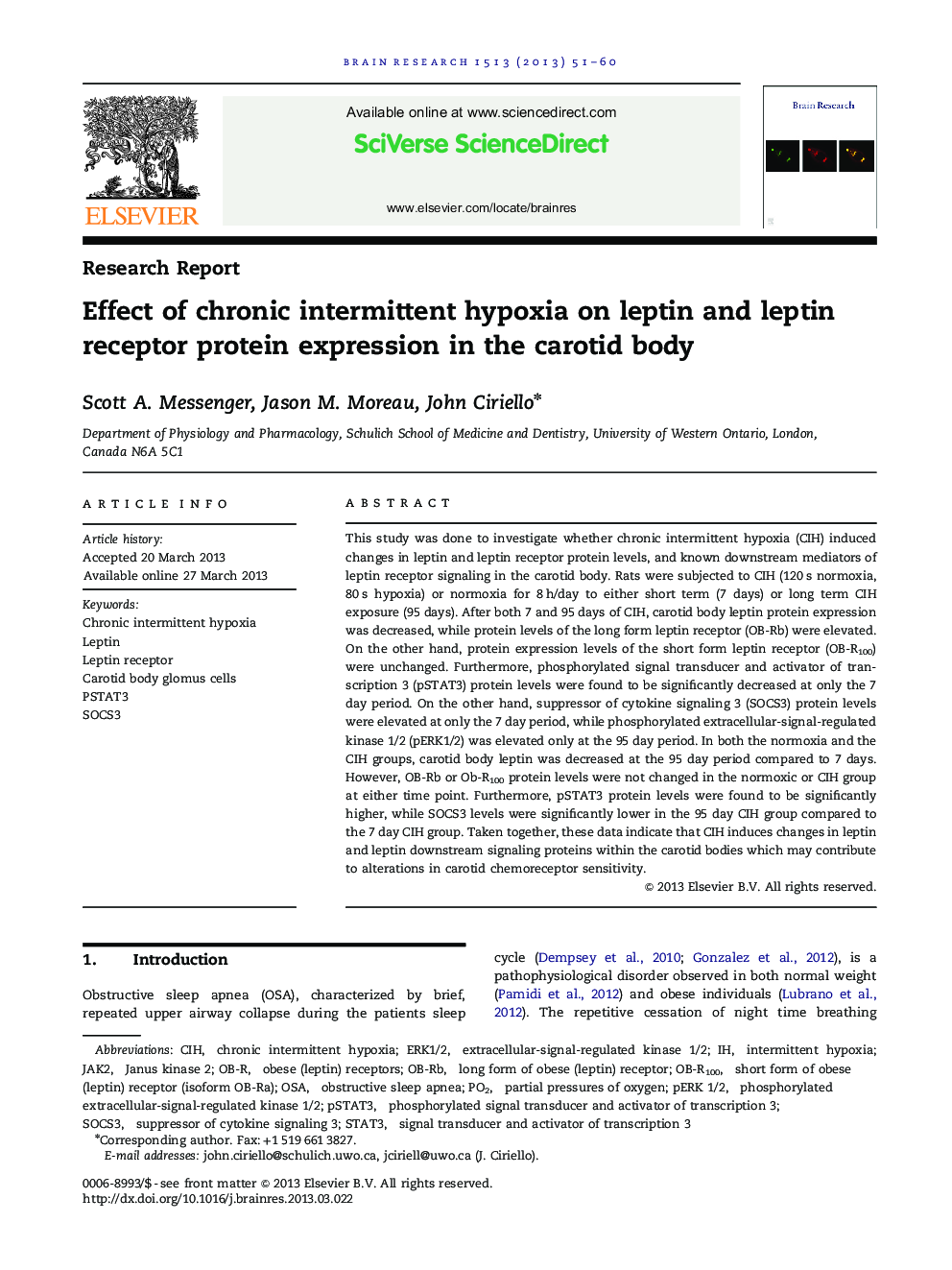| Article ID | Journal | Published Year | Pages | File Type |
|---|---|---|---|---|
| 6263872 | Brain Research | 2013 | 10 Pages |
•Carotid bodies express leptin, and OB-Rb and Ob-R100 leptin receptors.•Short term (7 d) and long term (95 d) chronic intermittent hypoxia (CIH) exposure.•Leptin and pSTAT3 protein were decreased in carotid body after CIH.•OB-Rb, SOCS3 and pERK1/2 protein were increased at the different times after CIH.•Leptin, its receptors and downstream signaling proteins may affect chemosensitivity.
This study was done to investigate whether chronic intermittent hypoxia (CIH) induced changes in leptin and leptin receptor protein levels, and known downstream mediators of leptin receptor signaling in the carotid body. Rats were subjected to CIH (120 s normoxia, 80 s hypoxia) or normoxia for 8 h/day to either short term (7 days) or long term CIH exposure (95 days). After both 7 and 95 days of CIH, carotid body leptin protein expression was decreased, while protein levels of the long form leptin receptor (OB-Rb) were elevated. On the other hand, protein expression levels of the short form leptin receptor (OB-R100) were unchanged. Furthermore, phosphorylated signal transducer and activator of transcription 3 (pSTAT3) protein levels were found to be significantly decreased at only the 7 day period. On the other hand, suppressor of cytokine signaling 3 (SOCS3) protein levels were elevated at only the 7 day period, while phosphorylated extracellular-signal-regulated kinase 1/2 (pERK1/2) was elevated only at the 95 day period. In both the normoxia and the CIH groups, carotid body leptin was decreased at the 95 day period compared to 7 days. However, OB-Rb or Ob-R100 protein levels were not changed in the normoxic or CIH group at either time point. Furthermore, pSTAT3 protein levels were found to be significantly higher, while SOCS3 levels were significantly lower in the 95 day CIH group compared to the 7 day CIH group. Taken together, these data indicate that CIH induces changes in leptin and leptin downstream signaling proteins within the carotid bodies which may contribute to alterations in carotid chemoreceptor sensitivity.
